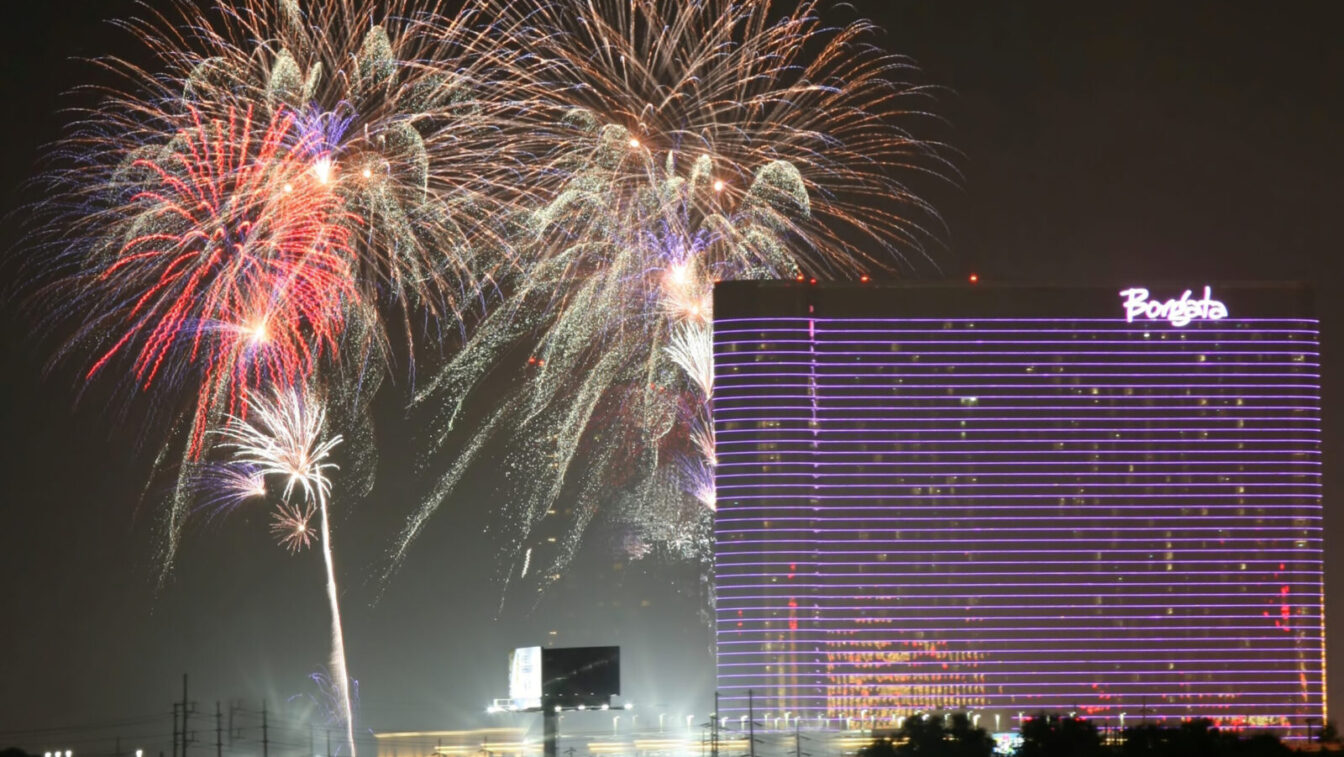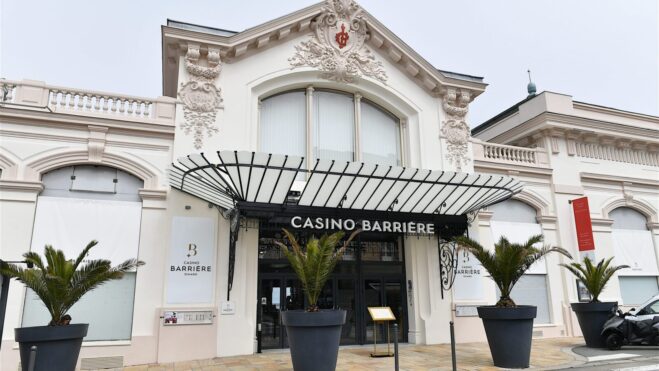Advance To Go, Again: Atlantic City Could Be Primed For Comeback, But Hurdles Are Numerous
One insider projects 2025 as ‘a year of results’ for the much-maligned New Jersey gambling town
11 min
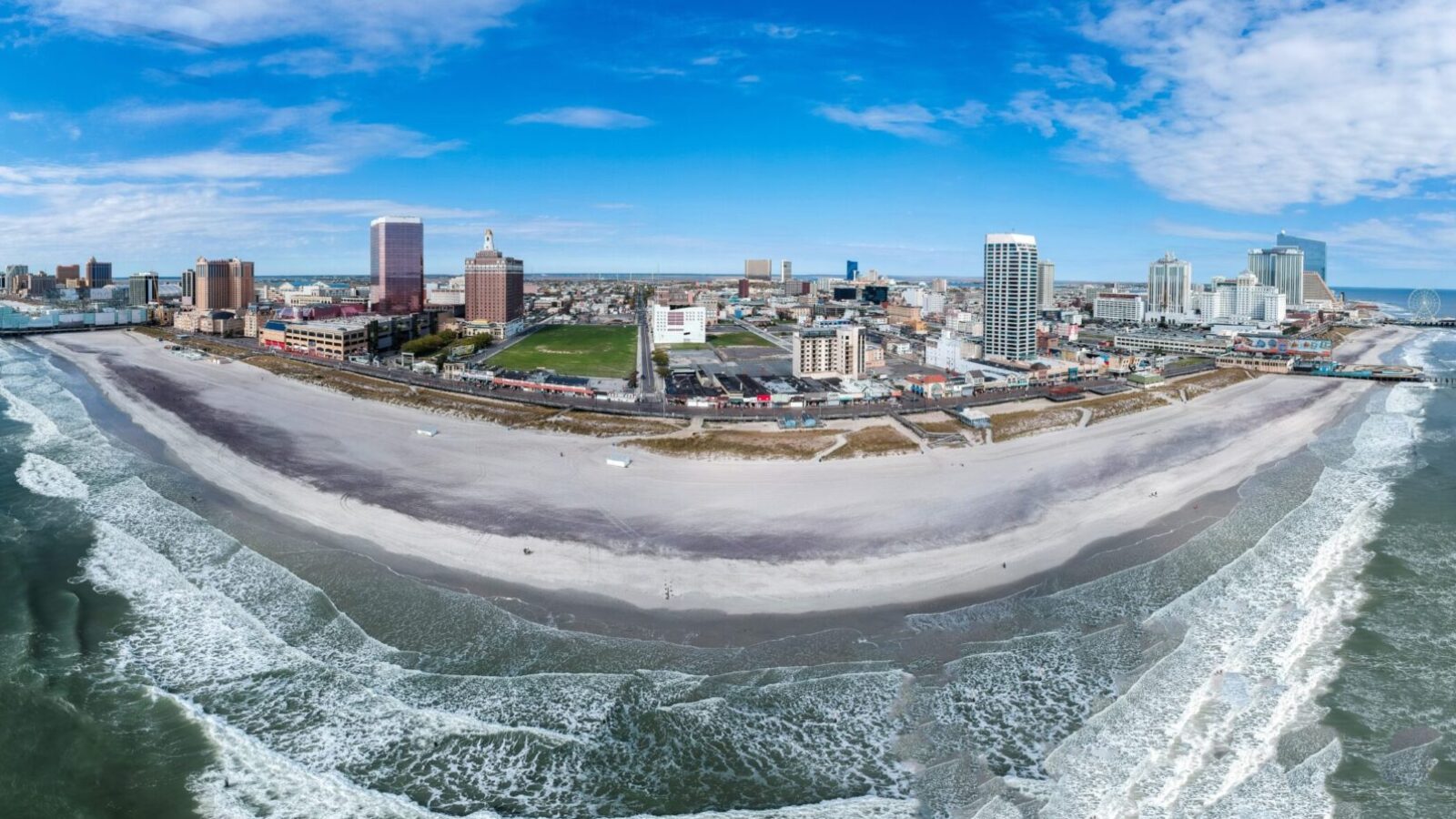
The Atlantic City Aquarium, which closed during the COVID-19 crisis in 2020, initially was scheduled to reopen in the fall of 2023. Then in mid-2024. Then in December. Now, “early in 2025” is the projected relaunch.
A new version of the Spinning Wild Mouse rollercoaster at the venerable Steel Pier was promised to open in 2023, only to be delayed by a year — and still had not launched as of the end of 2024.
A repaving and reconfiguration of Atlantic Avenue — the city’s main travel artery — began in 2023 but has not yet been completed.
Two key developers seeking to open condominiums along Pacific Avenue near some of the city’s casinos have expressed frustration over what they say have been unreasonable delays in permitting approvals.
And perhaps the biggest symbol of the city’s lack of progress — the planned $3 billion housing and retail project at the defunct 140-acre Bader Field former airport site — remains unfunded by the site’s developer two years after the plan first was unveiled.
Four former Atlantic City casino employees — all of them having roots to the city dating back 35 years or more — separately told Casino Reports that these undelivered promises are no surprise to them.
“For all these years, there has been a combination of incompetence, corruption, corporate greed, and politics that prevents anything from getting done,” said Ralph Caputo, a marketing executive for several of the city’s casinos beginning in 1983 before he returned to the state Assembly in 2008.
“The benign neglect — it really bothers me,” Caputo added.
Richard Schuetz, a former executive for Steve Wynn, among numerous other industry roles, who first came to Atlantic City in 1984 to work at the Golden Nugget, said “a lack of imagination” has hampered the city for all these years.
Roger Gros, the longtime publisher of Global Gaming Business magazine, said he moved to Atlantic City in 1976 — the same year that New Jersey residents approved a referendum allowing for the opening of casinos in the city.
“We had such high hopes,” said Gros, who spent four years as a casino card dealer in the city before entering the journalism profession. “But you had crooked mayors, a high tax rate, and never since has there seemed to be anybody trying to put together a real plan.”
Gene Johnson, a Showboat casino executive from 1989-97 and now a marketing and consulting analyst in the gaming industry, said a large part of the chronic problem is that from the beginning, much of the revenue derived from the city’s casinos wound up being dispersed around the state rather than being reinvested in the city.
Johnson added that once a number of casinos opened in neighboring Pennsylvania in 2006, Atlantic City casino executives focused so much on cost-cutting that customer service suffered as a result.
Mayor rejects criticism of city’s direction
The sense among so many people that Atlantic City is still stuck in the never-ending quagmire that now dates back nearly a quarter of a century exasperates current Mayor Marty Small.
“Perception is not reality — it’s just people’s opinion,” Small told Casino Reports. “Crime is down 9.8 percent, the Boardwalk is cleaner than ever, and our city’s finances have improved. We are very much headed in the right direction.”
Small said that the aquarium could already have reopened, but he wants to make sure that the site is fully operational when the crowds arrive for that reopening day.
He added that the Steel Pier rollercoaster launch is imminent, that the Atlantic Avenue upgrades already are in the works, and even that he is “cautiously optimistic” that Bader Field, the former site of the Atlantic City Municipal Airport before it closed in 2006, would soon finally be the location of a major new development.
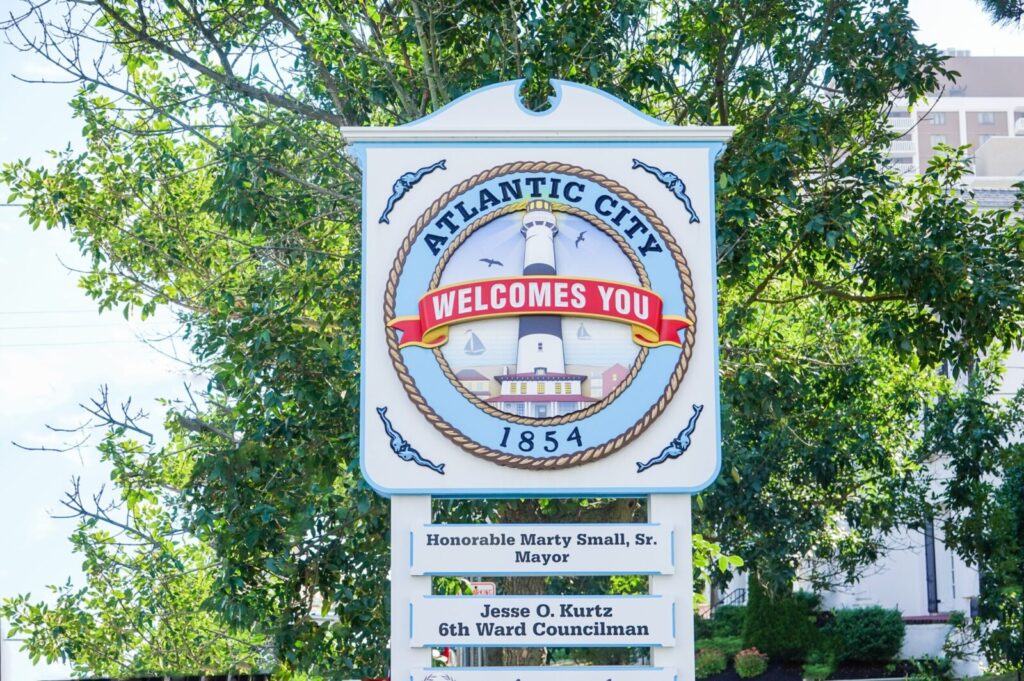
Small also said he had smoothed out issues with Orange Loop developer Pat Fasano, who beginning in 2020 not only invested in Atlantic City properties at New York, Tennessee, and St. James streets, but also publicly touted the city as a wise place for others to invest.
Fasano is well-known in New Jersey real estate circles for his leading role in the revival of Asbury Park, another oceanfront city about 75 miles north that also has a colorful history but that had fallen on hard times in recent decades.
“We’re trying to show people there’s all this unloved land in Atlantic City with so much potential; it’s similar to Asbury Park,” Fasano told The Vineland Daily Journal four years ago. “Atlantic City has a great amount of undeveloped land that was cleared for the next casino that didn’t come.”
Fasano’s stamp of approval was an ideal advertisement for other developers to join in the renaissance. But Fasano went public in the spring of 2024 over his objections to what he called unreasonable interpretations by city officials of permit requirements for an $8 million condominium project.
The renovation of the former Atlantic Club casino on the Boardwalk — which also operated as the Golden Nugget, Bally’s Grand, and Atlantic City Hilton at various times before closing in 2014 — into a condominium and hotel project has faced similar permitting issues.
Executives with DEEM Enterprises, the proposed developer of the Bader Field site, have told Small that $750 million in financing to construct Phase One is virtually completed and that a formal letter enshrining that financial is imminent to set up an official closing “before the end of the first quarter of 2025.” At that point, DEEM would pay the city $100 million to purchase the land.
The original schedule following the signing of a memorandum with the city and the state in March 2023 was for a six-month deadline for DEEM to formalize its redevelopment plan and lock in the financing. But that deadline already has been extended several times. The location that DEEM CEO Erick Feitshans has called “one of the largest pieces of undeveloped real estate in the mid-Atlantic” region has been a hot-button political issue in the city for almost two decades.
One major Atlantic City project that has gotten across the finish line is the 120,000-square-foot Island Waterpark at the former Showboat casino site on the Boardwalk — opened on July 4, 2023. The park, billed as “the largest indoor beachfront water park in the world,” features 11 waterslides, a lazy river, a waterfall, special sections for children, four restaurants, and three bars including one swim-up version. Anecdotal reviews on social media are mostly positive, aside from complaints about the admission price — $59 on weekdays or $69 on weekends — and the cost of food and beverages.
Gillian’s Wonderland Pier amusement park, meanwhile, closed in October after almost 60 years in business.
However, a bill passed by a state Senate committee in early December could provide a boost to the city’s prospects. The Neighborhood Revitalization Tax Credit program could grow from an annual funding ceiling of $15 million to $65 million under the bill’s provisions.
The program, which debuted more than two decades ago, provides grants to community-based non-profit firms. There are four such groups in Atlantic City — which has an unemployment rate of 8.5% that is among the highest figures in New Jersey — and supporters point to what they say have been tangible improvements for low-income communities due to the program.
Another voice weighs in
Jane Bokunewicz, the Stockton University director of the Lloyd D. Levenson Institute of Gaming, Hospitality & Tourism School of Business, told Casino Reports that the projected approvals of three New York City-area casino licenses in 2026 means that Atlantic City “will need to up its game” in response.
“As a beachfront destination with many vacant and underdeveloped lots, Atlantic City has enormous potential for growth,” she said. “Investors have shown confidence in the future of Atlantic City with new development projects on the horizon in the Orange Loop like the Top Hat boutique hotel and the planned opening of a container park, which is scheduled for 2025.
“Entrepreneurs and developers have an excellent opportunity to expand the city’s offerings beyond casinos, making it an appealing place to visit and live. A lot of the work and investment needed to reach that goal is already being made.”
As for potential tourist concerns about crime, Bokunewicz said: “Community stakeholders are aware that blighted buildings, negative perceptions around safety and cleanliness, and deteriorated city infrastructure and roads are barriers to the city realizing its full potential. They are taking action to address these issues.
“The city’s four Community Development Corporations have worked to address blight by funding murals on open walls, assisting business owners with façade renovations, and providing support to residents interested in making a life in Atlantic City, often by reclaiming neglected homes.
“In addition to many street-level beautification efforts such as community clean-up events, planting trees, repaving sidewalks, and installing planters, the CDCs and other city outreach groups have also made progress in addressing homelessness — a condition that some residents and visitors view as unsafe. Through their grassroots efforts, people in need are being connected with social services that can help.”
Other efforts, she added, include a project that provides Ring doorbell cameras to residents to help deter thefts, as well as the addition of 30 more police officers last spring and an increase in the number of streetlights in the city.
The Atlantic Avenue thoroughfare “has been in desperate need of repaving for quite some time,” Bokunewicz said, and political disputes over how to reconfigure the road have been resolved.
The issue of public safety — particularly along the iconic Boardwalk — is not a new one. Caputo, the former assemblyman, said that homelessness was an issue right from the beginning of the casino era. But he said that the large crowds that visited the new forms of entertainment mitigated the issue somewhat in the early days.
Schuetz said that four decades ago, the lack of sufficient parking at the hotels left guests needing to take shuttles to the casinos.
“We instructed the guests to lock their doors,” Schuetz said, adding that he recalls news of limousines being hijacked in the area.
Gros said that the Boardwalk is safer now than it used to be, while acknowledging that is not the general perception.
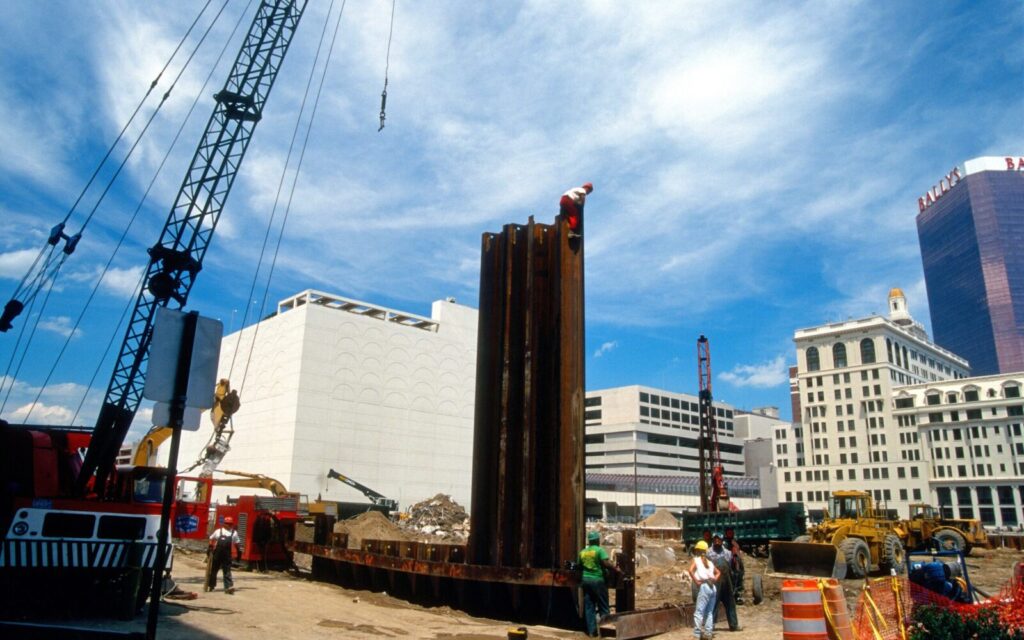
Atlantic City’s history in context
The “casino era” in Atlantic City began with the passage of a statewide referendum in 1976 granting the city a monopoly on retail casinos that continues to this day.
But this is far from the first incarnation of the city as a tourism haven. The first actually came in the 1850s, when the city — located on Absecon Island — was incorporated, the first commercial hotel was built, and train service began as a way to bring Philadelphia-area residents to the city.
The first version of the iconic Atlantic City Boardwalk was laid out in 1870, as the tourism scene continued to boom, and a second rail line was launched. Numerous hotels opened along the Boardwalk in the subsequent decades, with views of the adjacent Atlantic Ocean attracting well-to-do visitors.
As fans of the HBO television show Boardwalk Empire (which aired from 2010 to 2014) well know, Atlantic City’s popularity soared in the 1920s as city officials brazenly snubbed the nationwide prohibition on consuming alcohol.
Political boss Enoch “Nucky” Johnson (the inspiration for Steve Buscemi’s Nucky Thompson character on the HBO series) oversaw not only hotel nightclubs that sold alcohol, but also featured gambling and prostitution — all sold to the public as turning the city into “The World’s Playground.” The first Miss America pageant was held in the city in 1920, and it was boosted by the subsequent construction of a convention center now known as Boardwalk Hall.
The unofficial “National Crime Syndicate” was launched in the city in 1929, as Johnson invited infamous mobsters such as Lucky Luciano, Meyer Lansky, Bugsy Siegel, and Al Capone to meet. Jazz clubs and high-end restaurants proliferated in the city beginning in the 1930s, and the city’s success was so notable that in 1935, Parker Brothers produced the iconic “Monopoly” board game that featured the names of Atlantic City streets such as Boardwalk, Park Place, St. Charles Place, and Baltic Avenue.
The city began to fall on hard times in the mid-20th century, however, and the decline reached its nadir in the summer of 1964, when the Democratic National Convention came to town. Run-down hotels, homelessness, a lack of air conditioning, and unkempt streets led to negative publicity nationwide among the countless political reporters who attended the event less than a year after the assassination of President John F. Kennedy.
The accelerating decline in the city’s fortunes directly led to the 1976 referendum that resulted in Resorts two years later becoming the first legal casino outside of Nevada.
More casinos soon followed, and the city’s gambling industry revenue grew every single year through 2006, when Pennsylvania and New York each opened their first casinos.
Those new facilities proved far more damaging than Atlantic City casino executives had forecast, and within just seven years, gaming revenue was down almost 50% from its peak.
Meanwhile, the success of the casinos did not improve the overall fortunes of the city, as tourists arrived at the casinos and spent virtually all of their time there gambling, dining, drinking, and attending concerts performed by premium entertainers such as Frank Sinatra.
The casinos by the late 2000s no longer could continue to subsidize purses for the state’s horse racing industry, putting both industries in jeopardy. That led to a 2011 referendum approved by voters to allow each of those facilities to offer betting on professional and college sports, in direct contravention of the Professional and Amateur Sports Protection Act (PASPA) passed by Congress in 1992.
It took six years of court battles, but in May 2018 the U.S. Supreme Court sided with New Jersey in voiding PASPA and ending Nevada’s virtual monopoly on that form of gambling. In the interim, online casino gaming was launched in the state in 2013, and it, too, somewhat helped the bottom lines of the casino operators.
Still, five of the city’s 12 casinos closed between 2014 and 2016, and Atlantic County subsequently at times became the location of the highest home foreclosure rates in the U.S.
Those legislative efforts to aid the casinos did little to improve the plight of the city, with neither city nor state officials yet able to solve the city’s woes — as well as the public’s perception of the city as being unsafe.
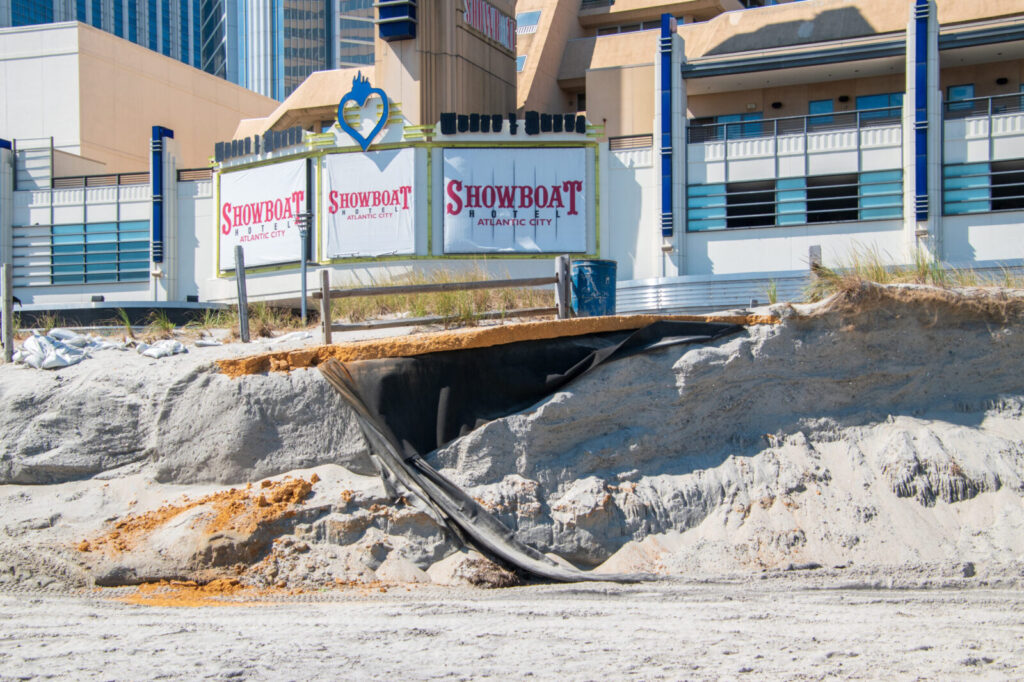
What’s next for Atlantic City?
While Mayor Small insists that the city already is on the right path, others say a new vision is needed.
Gros said that “a really big meeting of the minds working toward the same goal” is required, with city and state elected officials cooperating with private developers and casino operators. He also said that the lack of major public events — the annual air show that once was held each summer did not take place in 2024 — is evidence of a weakness in public relations that should be touting the city’s assets.
Schuetz said that the emergence of a visionary such as his former boss, Steve Wynn, could revive the city’s fortunes, as well as a larger convention center and a major project finally opening at that star-crossed Bader Field site.
Caputo said he still remembers a comment by a Philadelphia city planner more than 40 years ago stressing that the solution is a “one block at a time” philosophy — while calling the Boardwalk “the whole ballgame” in terms of improving the public’s perception of the city.
“And that has to be combined with some sort of a strong master plan,” Caputo said. “But no one seems to have that plan.”
Potentially further complicating matters is the fact that Mayor Small recently was indicted for witness tampering — the witness being his own daughter, who accused her father of physically assaulting her in January 2024. The indictment alleges that six months after his daughter reported the incident, Small tried to pressure her into recanting the story.
Small is up for reelection in 2025, though he has dismissed pressure on him to resign and to not run for office again. The city’s Democratic primary takes place in June, and the prospects of a possible change in power could impact plans by private developers who see the city as having an uncertain future.
Solving the Bader Field quandary before the primary undoubtedly would enhance Small’s chances of gaining another term, however.
Bokunewicz concluded her comments on a hopeful note, saying, “2024 seems to have been a year of partnership building and planning — making way for 2025 to be a year of results.”
The suggestion that Atlantic City could be on the cusp of a long-sought revival is nothing new. A 2025 launch of some of the attractions once ticketed to open in 2023 or 2024 would at least be an encouraging step toward validating that optimism.


